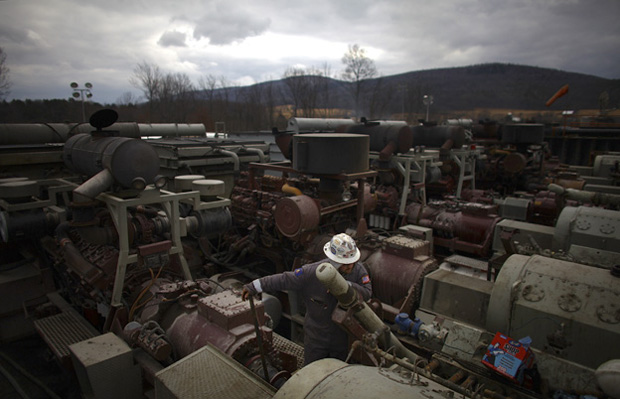CONSERVATION Council of WA director Piers Verstegen claims gas fracking cannot occur without causing massive and irreversible environmental damage
Mr. Verstegen claims it has devastated large areas and poisoned communities in the United States.
“Recently I had an opportunity to visit shale gas fracking areas in the USA and I was horrified,” he wrote in a campaign letter sent out to CCWA supporters and donors this week.
“I met sick families who could not move off their land. I saw gas bubbling out of natural groundwater springs that could be set alight. I was told stories of sick and dying livestock. I met regulators who were turning a blind eye and I saw the gas industry’s armed security guards preventing farmers access to their own land.
“After seeing this I vowed I would do whatever I could to stop this happening in Western Australia…I have no doubt that gas fracking is one of the most serious environmental challenges facing Western Australia.”
WHAT the Conservation Council of WA claims are industry myths about shale gas fracking:
Industry claim 1: The depth of WA shale deposits means fracking is safe
CCWA: This claim is false. The two most significant causes of water contamination from gas fracking operations are not related to the depth of gas-bearing rock. US studies have found clear evidence of groundwater pollution from shale and tight gas developments where target formations are at similar depths to those in Western Australia.
Main pathways for water contamination from shale gas fracking operations are:
a) Well casing failure due to corrosion and / or faulty construction. Research shows that 6-7% of shale gas wells in USA fail within one year of construction and over 60% fail after 30 years. Well casings can fail (leak) at any point and almost all gas wells will intersect groundwater in WA.
b) Disposal of fracking ‘flowback’ fluids. Tens of thousands of litres of water mixed with fracking chemicals must be stored, and then disposed of after fracking at each gas well. Storage and disposal of used fracking fluids represents a major pathway for contamination of surface water and/or groundwater.







